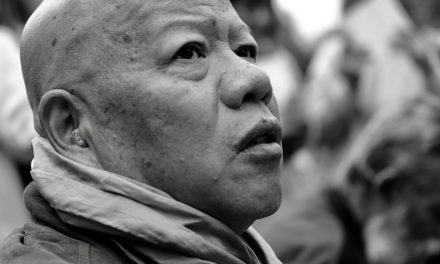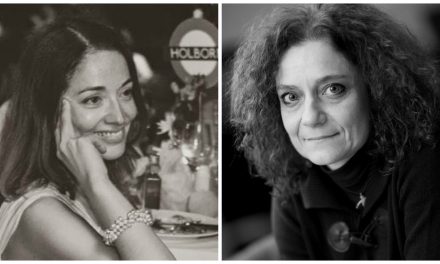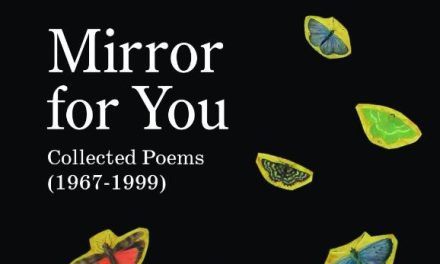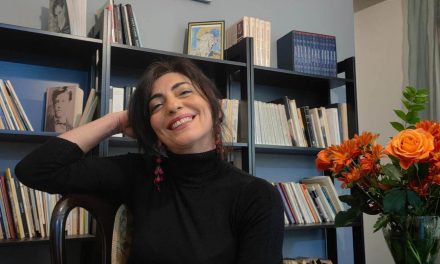Avgi Lilli (Bulgaria, 1980) is a Greek-Cypriot writer based in Nicosia, Cyprus. She writes poetry, microfiction and scripts for short film productions. She has also written short theatrical plays staged in Cyprus. She has published 3 poetry collections in Greek: Rough notes on a life vest (Nicosia, Armida, 2011), The Slaughter of the Century (Larissa, Thraka,2018; 2nd edition 2020) and Tail on the edge (Larissa, Thraka, 2021; 2nd edition 2023–shortlisted for the Cyprus Literary Awards). Her short stories collection Tracing paper and other short stories was published in 2023 by Potamos Publications and was awarded the “Chartis” Prize for Prose (2024).
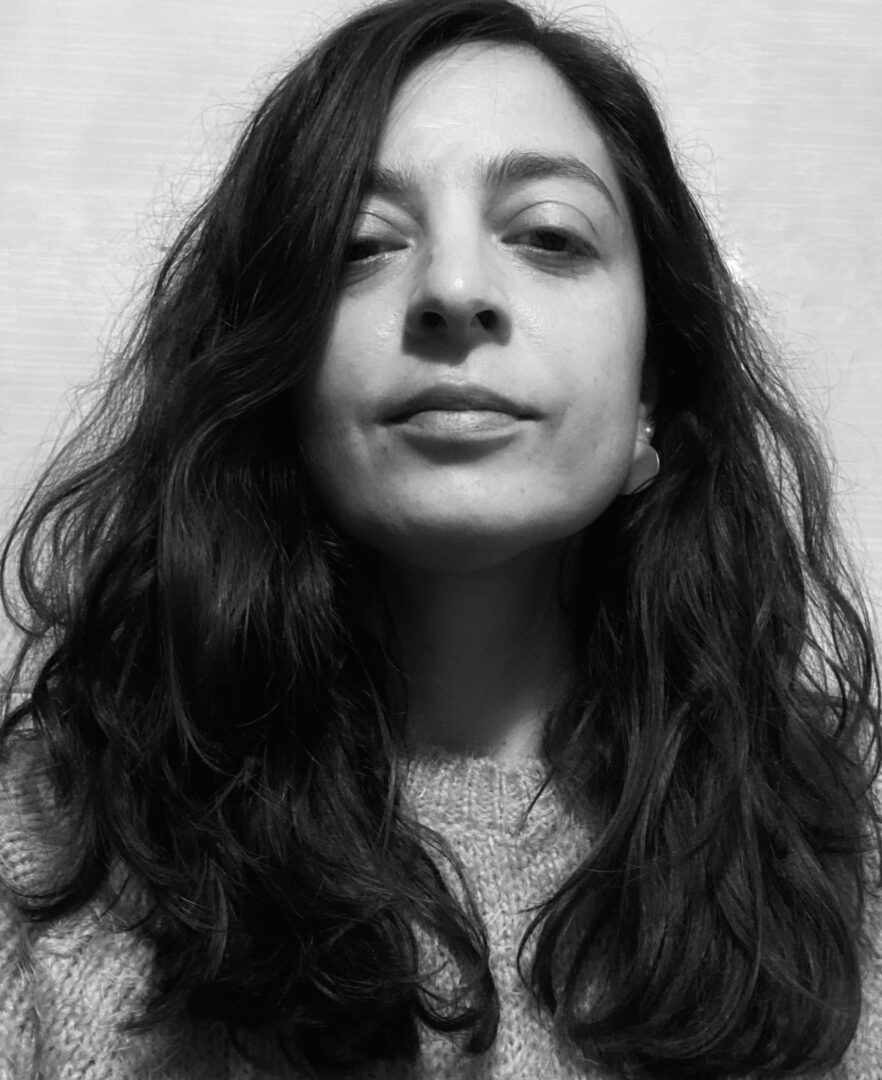
Her translation of Georgi Gospodinov’s poems in Greek has been released by Ikaros Publications in 2022. Some of her poems and bonzai stories have been translated in English, Spanish, Italian and Turkish. Her book reviews have been published in online and printed literary magazines. She studied Classics and Modern Greek Philology (University of Cyprus) and holds a PhD in Modern Greek Philology (University of Athens, 2017). Her PhD, soon to be published, refers to the work of post-war writer Alexandros Kotzias (1926-1992).
Your latest writing venture Ρυζόχαρτο και άλλες μικρο-ιστορίες [Tracing paper and other short stories] (Potamos, 2023) recently received the Best Prose Αward By Chartis magazine. Tell us a few things about the book.
The book was ready already in 2020, but as another victim of the pandemic it was published in 2023. But I guess this fact is more important for me than for the reader. Because between 2020 and 2023 my life changed radically, so this is a work that, when I took it in my hands, I was already in distance. However, it has brought me some very nice surprises, not only the distinction you mention but also very favorable reviews. And, of course, the most important of all: the excellent cooperation with a publisher who made sure that the book had a beautiful cover, that I felt – before we even agreed – that fitted the book perfectly. So, it’s a book that I feel started its course with a lot of light and has a journey like gurgling water in a cool and clear River [Potamos, the publisher’s name, means “river” in English].
Tracing paper is my first publishing venture in prose, something I previously declared that I was not interested in. In the end, indeed, as I write somewhere in the book, “clichés always tell the truth”; in other words, never say never! Τracing paper includes short stories that refer to the representation of ordinary, everyday life, events or expected milestones related to the human experience. Here I am interested in the depiction of the moment and the ephemeral – as a frame, a photograph or a favourite song.
In his review of the book, Kostas Karavidas commented on how “short form constitutes for you the appropriate form to narrate episodes of personal mythology that, thanks to an imaginative handling, with subtle allusions and deliberate ambiguities, acquire depth, perspective and more universal dimensions”. Which are the main themes your writings touch upon? Are there recurrent points of reference in your work?
Recurrent themes, both in my poetry and prose, are the timeless existential themes: love, death, love as apotheosis and love as death, invincible time, mortality, the body. I am interested, perhaps more so in poetry, in carnal pleasure and speech as an expression of the human body. Even in prose, which has a more realistic staging, these are my themes. As well as something equally important, which in poetry (at least so far), is not to be detected: the political angst for my home country, Cyprus, but also for the world. And this theme was clearly reinforced – serving another cliché of life – following parenthood.
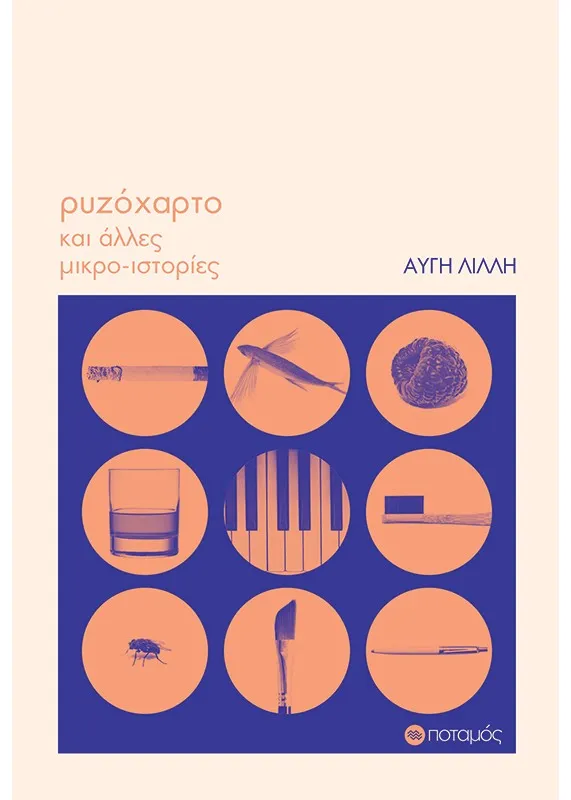
What about language? What role does language play in your writings?
I reckon I have developed a very different relationship with language depending on the literary genre. In poetry I am interested in the distillation and condensation of meaning, speech, image and especially feeling. To objectify all of the above – and time as well – in a poem. In short, to transform all these abstract senses and concepts into something tangible, to make “something” out of them. I think I am interested in the exact opposite in my short stories: through simplicity and yet allusiveness, with realism and sometimes humour, to arrive at a literary text “with the purest materials”. In practice, this also requires different processes than poetic composition, which is by definition more personal, more “deep”, more cryptic and even mystical in romantic terms (and I don’t mean hidden). In my prose I mainly desire simplicity and purity. If there is anything in common that language seeks in both my poetry and prose, it is to immortalize the feeling and the moment respectively.
“When I am asked once if poetry and art can save the world, my answer is no. But, I truly believe they can save a person”. How does literature converse with its surrounding reality? Could it be used to imagine what could be radically different realities?
Whether art copies life or life copies art, conversation between the two is self-evident and the ways of their coexistence are innumerable. Until the mid-20th century, theories and movements probably responded to the first part of the question, but now there are certainly many more variables to any interpretation; everything has become more complicated, faster, more chaotic.
As for the second part of your question, I don’t believe that literature represents a non-existent reality or a reality that is radically different. It represents a reality that existed or still exists through another prism. Or it envisions the reality to come, as in science fiction for example. Even fantasy novels, like mythology, are allegories of the world we know. I don’t expect literature to show me another world, but to bring me closer to this world. Literature, poetry perhaps in particular, expresses what we do not express, what we seek to express. And so, it acquires the dynamic and the power of rescuing language, aesthetics, meaning, memory.
Poetry, prose, theatrical plays, short scripts, academic research. Where do all these attributes meet? Which do you consider to be the binding thread?
Let me start by saying that I don’t feel in my heart that everything is connected in the same strong way. Poetry and short prose (because the long form rather scares me as a writer, but not as a reader…) are certainly united in the condensation of word and meaning, and in the sense of (ephemeral) things, the sense I don’t want to forget (or be forgotten). I would place quite closely my short scripts, which also fall into the “short” genre and which, in my case, always have something poetic about them, otherwise they don’t appeal to me as much. For example, Drained (2020, directed by Anna Fotiadou, written by Anna Fotiadou-Avgi Lilli) is a dramatic monologue of Clytemnestra in a timeless environment of reflection, while in The Call (2020, directed by Marios Psaras, screenplay by Marios Psaras- Avgi Lilli – Honorable Mention at the Drama International Short Film Festival) I knew from the beginning that the single-shot would, in its realism, provide a poetic aesthetics and my dialogues were written with this in mind.
Theatre was more of an experiment, while academic research was a path I simply walked along taking slow steps. I am currently at the point where I feel a great circle closes since I am to publish a monograph on the topic which, as a philologist, I have studied exclusively for more than a decade, the connection between critical theory and the poetics of the post-war writer Alexandros Kotzias (1926-1992).
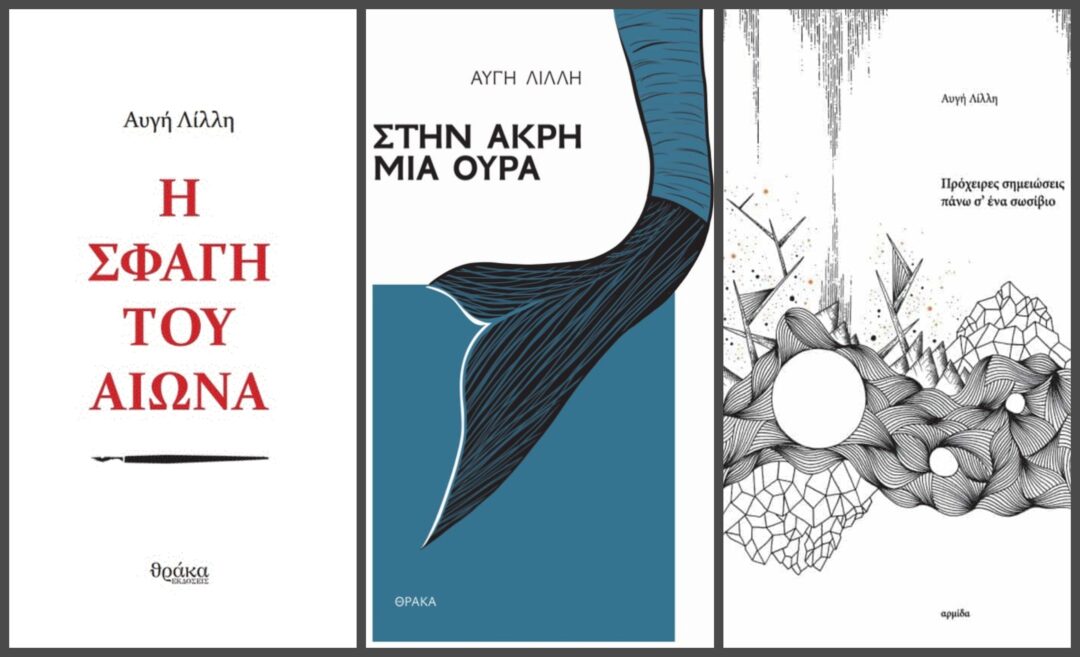
How do young writers converse with global literary trends? Where does the local meet the national and the universal?
First of all, I don’t know how much of a young writer I am anymore! Even if I accept that I’m somewhat young, Ι don’t know if in my forties I am still considered one… And that’s what I feel when I watch myself resist certain “trends” – or not understand them. I feel, for example, that it is highly expected from literature (and, of course, novelists and poets) to have a strong, even activist, social impact than a generally speaking political footprint in new practices, aesthetics and ideas. This one-dimension perception dangerously makes us forget art archetypical role: delight.
I believe that now we are more attracted to pain and trauma in their literal dimension, to a diary writing that confesses personal experiences, rather than to literature as an art that unifies, purifies, suggests, beautifies. I feel we have fallen into the trap of equating personal experience with universal pathos. However, the personal does not equal the universal. The more personalized it is, the more specific it becomes, and thus not universal. There is also a fear, perhaps, that the “artistic way” will repel the audience because “it is incomprehensible”. Of course, on the other hand, decades of contrived authority, unequal promotion and excess book publishing have created, and understandably so, a strong depreciation of the “artistic way”. And by “way” I mean not just broadly the “how,” but generally the artist’s vision of saying something else, of finding his or her voice and raising it within the whole, neither necessarily bloodlessly, nor essentially bloodily.
The world is changing rapidly, not just from one generation to the next. That is the only certainty. We are on the verge of a colossal change in terms of aesthetics within an unprecedented international political impasse. And since social revolutions do not achieve their goal in the way history has shown us so far, could this extreme deconstruction of art achieve more? Perhaps this is what we are now experiencing. After all, that’s what happened about a hundred years ago. And not just then. For example, the horrors of the World War I led to dadaism. Could the horror of the 21st century and the slow degeneration of humanity and the world simply lead us to share our stories and maybe this personal daring is translated into art, given that courage and survival are more important instincts than the artistic manner of the individual artist? Who knows? Only time, and history, will tell.
However, I have no doubt that the local/personal meets the universal when there is authenticity in artistic expression, which, as a rule, leads to an artistic result. That is, when what you do, whatever art you serve, you do it “honestly and erotically” according to Alexandros Kotzias. I don’t know if there is any other measurable method, so that your art is not about yourself alone. Perhaps a good step for the universal is to not make self-promotion an end in itself. In other words, why am I publishing a book? Is there something new, something different, that I have to say? Do I really have anything to say?
*Interview by Athina Rossoglou
**Intro photo by Evagoras Xydas
TAGS: LITERATURE & BOOKS | READING GREECE

